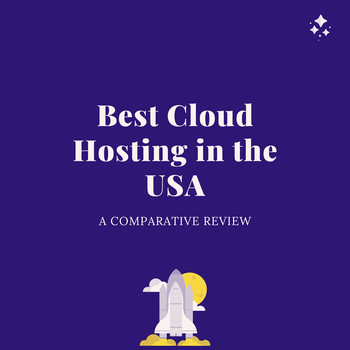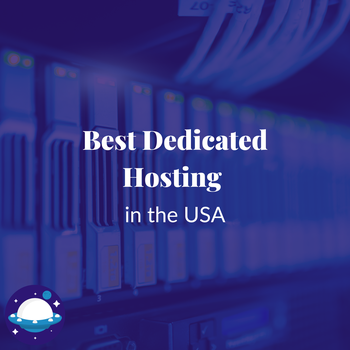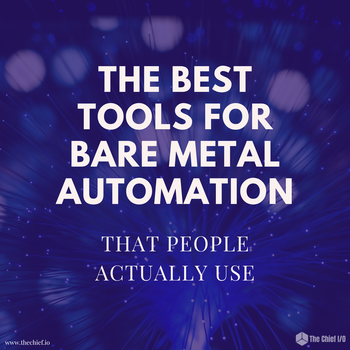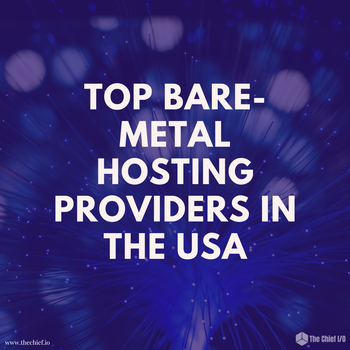9 Questions Every CTO Must Ask Before Adopting Kubernetes
in Kubernetes , Orchestration

For many teams, especially in small or medium organizations, adopting Kubernetes may not be what you really need at the moment. And if you want to use Kubernetes, you can use the managed Kubernetes service of your cloud provider. This will help you reduce the complexity, knowledge gap, and human resource you will need to dedicate to Kubernetes.
As a CTO/CIO/CEO, this article highlights 9 of the critical questions you should ask yourself or your teams before introducing Kubernetes into your workflow.
The popularity and hype around Kubernetes in recent times has made it look just as if you can't run your containerized applications on the cloud without it.
This is not necessarily true, and it depends on the state of your organization and the applications you deploy.
We will discuss some of the questions you need to ask as the CEO, CIO, or CTO of an organization on whether or not you should start using Kubernetes in your organization.
Why do you need Kubernetes?
Of course, if you’re doing it because of the hype around it, nobody will blame you for it but is that a reason enough?
Kubernetes is not as rosy and straightforward as it is being painted, and it is, in fact, a very complex technology. Do you have an application that runs many containers that need to communicate with one another? Does your application consisting of multiple services that need to scale horizontally quickly? Do you really need to stop using your monolithic architecture?
All these questions need to be answered honestly in order to be sure that you really need it.
Will adopting Kubernetes improve your service delivery speed?
The ability to roll out new features and get them to market quickly is one of the benefits of Kubernetes.
Many tech organizations using Kubernetes are shipping applications fast. Still, you need to ask yourself if adopting Kubernetes will really speed up things or slow it down for your organization.
Several factors can result in Kubernetes slowing down your deployment process. Factors like poor understanding of Kubernetes or how the application should be orchestrated or lack automation and a slow testing process.
It would be best to consider all these factors before deciding to use Kubernetes in your organization.
Can you keep up with the Kubernetes release cycle?
As a fast-evolving and constantly improving technology, Kubernetes releases major updates three times a year, generally about 12 times a year, including minor updates.
This question is essential because you need to keep your Kubernetes architecture at a close pace with each release.
Kubernetes support for old API stops from 2 versions back. When a new version of Kubernetes is released, only Kubernetes clusters running APIs from the last two versions will be supported.
This frequent update cycle means that you need to be conscious of the version of Kubernetes you use from the get-go to ensure you don't run out of date before launching your clusters at all. At the same time, you should have a team of professionals ready to update your Kubernetes clusters as new versions are released to ensure that you don't lag in API support and other benefits offered by Kubernetes.
Will adopting Kubernetes reduce your cost?
Of course, there are other ways you can run an application with multiple services without using Kubernetes. Like deploying EC2 instances, installing and configuring them then connecting each instance. You can also decide to go serverless where you don't have to worry about scaling at all. But this and other similar methods may be hard, expensive, and inefficient, so orchestrating with Kubernetes is more cost-efficient.
So, this means if you adopt Kubernetes, your cloud expenses will reduce?
It may not always be accurate. A lot of charges go into data transfers and other interactions between each microservice. If the Kubernetes cluster is poorly architected, it can result in unnecessary requests and exchanges, which will increase your cloud usage bill.
Before settling for Kubernetes, you need to think of how you will maximize it to yield the expected results in cost reduction.
Do you have a reliable cloud foundation?
To adopt Kubernetes in your organizations, whether you're using virtual machines, private or public cloud, your environment needs to be running stably and equipped with various provisionings.
It would be best if you could create VMs or spin up new containers on-demand. It would also help if you had networking utilities such as DNS, load balancers, and firewalls available, as well as storage capacity provisioned through APIs.
If you're using a public cloud, you'll be able to leverage various tools and features that will make all those requirements easy.
If the cloud infrastructure capacity is not in place, deploying and managing the Kubernetes cluster will be difficult for your team.
Can your team handle the security of your Kubernetes clusters?
Security in the cloud is no joke and can even get harder given the complexity of Kubernetes.
Before adopting Kubernetes in your organization, you need to ensure that you address security in your infrastructure from the beginning to avoid common security threats. Also, you need to ensure that your team is capable of designing your Kubernetes infrastructure to be highly resilient to failure.
An insecure Kubernetes cluster may lead to a failed transition that may badly affect your application's delivery.
Do you have professionals who are experienced with Kubernetes?
Adopting Kubernetes without having any member of your team who knows quite well about it will only waste your time and resources and can end up messing things up in your infrastructure.
If you don't have the required engineers and developers that master Kubernetes, starting by learning Kubernetes is the first thing you should do. Many organizations start using Kubernetes in testing environments during a period before moving to production.
Get a 15% discount on theseKubernetes and cloud native courses using the discount code "learnkubernetes15".
Can you give your team the time and resources to learn the skills required to use Kubernetes?
Again, if you really want to harness the full benefits of Kubernetes, you need to dedicate time and resources to educating and upskill every member of your development and Ops teams on how to maximize the technology to move your business forward.
Kubernetes is a complex technology, and each member of your team needs these skills because they will all be interacting with it directly or indirectly.
Hire the right employees
Adopting Kubernetes will be quite a journey, and you need to build a solid team to make things smooth for your organization.
It would help if you had a team of individuals who have worked with similar technologies such as Docker Swarm and are ready to learn more and implement Kubernetes in their typical workflow. You can also consider hiring new DevOps talents, looking for Kubernetes experience mainly as a criterion of employment.
If you are recruiting Kubernetes specialists, visit Jobs For DevOps job board and submit your job offer. Read more about how this job board works.
Get similar stories in your inbox weekly, for free
Share this story:

The Chief I/O
The team behind this website. We help IT leaders, decision-makers and IT professionals understand topics like Distributed Computing, AIOps & Cloud Native
Latest stories
Best Cloud Hosting in the USA
This article explores five notable cloud hosting offers in the USA in a detailed way.
Best Dedicated Hosting in the USA
In this article, we explore 5 of the best dedicated hosting providers in the USA: …
The best tools for bare metal automation that people actually use
Bare metal automation turns slow, error-prone server installs into repeatable, API-driven workflows by combining provisioning, …
HIPAA and PCI DSS Hosting for SMBs: How to Choose the Right Provider
HIPAA protects patient data; PCI DSS protects payment data. Many small and mid-sized businesses now …
The Rise of GPUOps: Where Infrastructure Meets Thermodynamics
GPUs used to be a line item. Now they're the heartbeat of modern infrastructure.
Top Bare-Metal Hosting Providers in the USA
In a cloud-first world, certain workloads still require full control over hardware. High-performance computing, latency-sensitive …
Top 8 Cloud GPU Providers for AI and Machine Learning
As AI and machine learning workloads grow in complexity and scale, the need for powerful, …
How ManageEngine Applications Manager Can Help Overcome Challenges In Kubernetes Monitoring
We tested ManageEngine Applications Manager to monitor different Kubernetes clusters. This post shares our review …
AIOps with Site24x7: Maximizing Efficiency at an Affordable Cost
In this post we'll dive deep into integrating AIOps in your business suing Site24x7 to …
A Review of Zoho ManageEngine
Zoho Corp., formerly known as AdventNet Inc., has established itself as a major player in …












